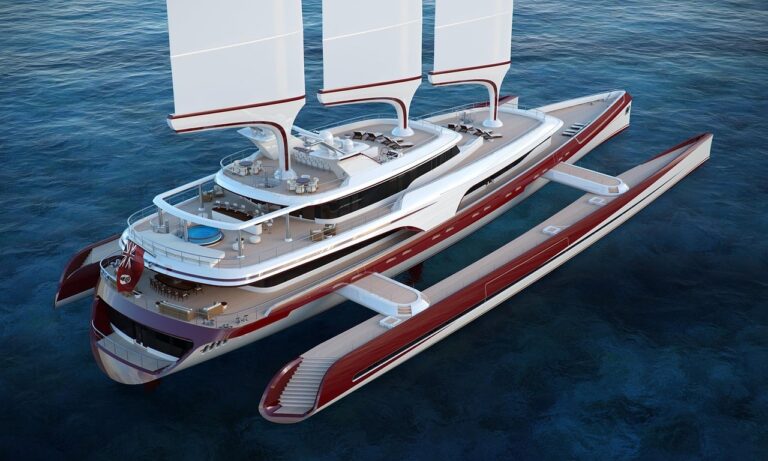How to Differentiate Between Quartz and Automatic Luxury Watches
As we plunge into the mysterious world of luxury watches, one question that has perplexed many horological enthusiasts is the art of differentiating between quartz and automatic timepieces. Like two intrepid adventurers navigating uncharted waters, these wrist adornments have captivated hearts and minds with their exquisite craftsmanship. So, whether you are an aspiring watch aficionado or simply someone in search of timeless elegance, join us on this grand quest to unravel the secrets behind quartz and automatic luxury watches. Together, we shall embark on a journey of enlightenment, uncovering the hidden complexities that lie beneath their striking exteriors, ultimately empowering you to discern between these ticking marvels with confidence and finesse. Brace yourself, for we are about to embark on a watch lover’s odyssey like no other!
Table of Contents
- Differentiating Quartz and Automatic Luxury Watches: A Comprehensive Guide
- Understanding the Mechanisms: Quartz and Automatic Movements Explained
- Examining Timekeeping Accuracy: Precision and Consistency as Key Indicators
- Material Quality and Craftsmanship: Unveiling the Signatures of Luxury Watches
- Unraveling the Pricing Puzzle: Value Comparison for Quartz and Automatic Watches
- Matching Lifestyle and Preferences: Selecting the Perfect Timepiece
- FAQs
- In Conclusion
Differentiating Quartz and Automatic Luxury Watches
When it comes to luxury watches, two popular movements stand out: quartz and automatic. Understanding the differences between these two types is crucial for any watch enthusiast or prospective buyer.
While both offer their own unique advantages and drawbacks, here is a comprehensive breakdown of how to differentiate quartz and automatic luxury watches:
- Mechanism: One key distinction between quartz and automatic watches lies in their mechanisms. Quartz watches are powered by a battery, which causes a quartz crystal to vibrate at a precise frequency, ultimately generating the movement. On the other hand, automatic watches rely on the kinetic energy created by the wearer’s natural wrist movements, which is then transferred to the watch’s mainspring, powering its intricate mechanical movement.
- Precision: Quartz watches have long been prized for their unmatched accuracy. Thanks to their electronic pulsation, these timepieces offer reliable timekeeping, often with minimal deviation. In contrast, automatic watches, while still exceptionally accurate, tend to have a slightly wider margin for error due to their mechanical nature.
- Maintenance: For individuals seeking a low-maintenance option, quartz timepieces often take the lead. These watches generally require battery replacements every one to two years, with minimal additional servicing needs. On the other hand, the intricate mechanisms and complex movements of automatic watches may necessitate regular maintenance, including periodic cleaning, lubricating, and sometimes even complete overhauls to ensure optimal performance.
- Aesthetics: While personal preference plays a vital role in selecting a luxury watch, the aesthetics of quartz and automatic timepieces do differ. Quartz watches, often constructed with precise engineering and fewer moving parts, tend to be thinner and lighter, lending themselves to sleek and contemporary designs. Conversely, automatic watches showcase their intricate mechanical components through transparent case backs, boasting an air of sophistication and traditional craftsmanship.
Remember, both quartz and automatic luxury watches have their own merits and charm. Whether you desire the cutting-edge precision of a quartz movement or the timeless allure of an automatic piece, exploring both types will allow you to make a well-informed decision when adding a luxurious timepiece to your collection.
Quartz and Automatic Movements Explained
When it comes to watch movements, there are two main types that dominate the market – quartz and automatic. Quartz movements, often found in affordable and highly accurate timepieces, use electrical currents to power the watch. These movements rely on a battery to send electrical pulses through a piece of quartz crystal, which then vibrates at a precise frequency. These vibrations are then converted into accurate timekeeping by a circuit, providing reliable and consistent timekeeping. Automatic movements, on the other hand, embody true mechanical craftsmanship. Instead of relying on batteries, these movements are powered by the motion of the wearer’s wrist. Every gentle movement and flick of the wrist generates energy that is transferred to a mainspring, which is then released gradually to power the watch. This intricate mechanical dance not only offers precise timekeeping, but also showcases the skill and precision of watchmaking artisans. Whether you prefer the precision of quartz or the artisanal charm of automatic movements, both offer unique experiences and cater to a wide range of watch enthusiasts’ tastes.
Precision and Consistency as Key Indicators
When it comes to timekeeping accuracy, precision and consistency are two critical indicators that cannot be overlooked. Precision signifies the exactness and accuracy with which time is recorded or measured, while consistency denotes the ability to maintain the same level of accuracy over a given period. These two factors go hand in hand and serve as the foundation for reliable timekeeping systems. Achieving precision requires meticulous attention to detail, ensuring that every second, minute, and hour is accounted for with total accuracy. Consistency, on the other hand, ensures that this precision is upheld consistently throughout, avoiding any deviation or fluctuations that could lead to discrepancies in timekeeping records.
- Precision demands a high level of accuracy in keeping track of time intervals, down to the smallest fractions of a second. A precise timekeeping system leaves no room for error, guaranteeing that each unit of time is measured with utmost accuracy.
- Consistency plays a vital role in timekeeping accuracy by maintaining a constant level of precision. It ensures that the system remains reliable and trustworthy by eliminating any variations in recording time, ensuring that each measurement is as accurate as the last.
- Precision and consistency are both essential for various industries where accurate timekeeping is crucial, such as aviation, healthcare, and scientific research. In these fields, even the smallest deviation in timekeeping accuracy can have significant consequences.
Therefore, precision and consistency are key indicators when examining timekeeping accuracy. Together, they form the backbone of reliable timekeeping systems, enabling accurate measurements to be made consistently and thereby enhancing efficiency and productivity across various domains.
Unveiling the Signatures of Luxury Watches
A true testament to the art of horology, luxury watches offer more than just precise timekeeping. From the delicate interplay of finely crafted components to the meticulous attention to detail, the material quality and craftsmanship embedded within these timepieces reveal the handiwork of master artisans. Each luxury watch bears its own signature, a distinctive mark that sets it apart from the rest. The use of premium materials such as 18-karat gold, platinum, and diamond embellishments not only ensures longevity but also exemplifies opulence and elegance. Sourcing the finest leathers, exotic skins, and innovative materials like ceramic and carbon fiber, these watches effortlessly combine durability with contemporary style. The sophisticated dials, often embellished with intricate engravings and guilloché patterns, showcase the extraordinary precision exhibited by skilled craftsmen. Every painstaking detail, from the polished bezel to the intricately finished movement, signifies the striving for perfection that luxury watchmakers embody.
Value Comparison for Quartz and Automatic Watches
When it comes to choosing a timepiece, one of the most puzzling aspects can be deciphering the value behind the price tag. Quartz and automatic watches, both with their unique characteristics, often leave shoppers wondering which one offers the best bang for their buck. To unravel this pricing puzzle, let’s delve into the key factors that contribute to the value of these two types of watches:
- Mechanism: Automatic watches boast a complex mechanical movement, making them a labor-intensive masterpiece. Their intricate craftsmanship and attention to detail contribute to a higher price tag. On the other hand, quartz watches utilize reliable electronic technology, resulting in more affordable options.
- Precision: Quartz watches are renowned for their unrivaled precision, offering accuracy within seconds per month. Automatic watches, while impressive, often display a slight variation in timekeeping accuracy due to the intricate mechanics at play.
- Craftsmanship: Automatic watches are celebrated for their exquisite handcrafted elements. With intricate dials, skeleton backs, and visible gears, they exude an undeniable charm. Quartz watches, while more focused on functionality, still showcase fine craftsmanship through their sleek designs and attention to detail.
As you consider your options, remember that choosing between quartz and automatic watches ultimately depends on your personal preference and budget. Both offer their own unique set of advantages and are crafted with utmost expertise. By understanding the value comparison between these two types of watches, you can make an informed decision that perfectly aligns with your style and requirements.
Matching Lifestyle and Preferences
In the world of watches, finding the perfect timepiece goes beyond just telling time. It’s about matching your lifestyle and preferences, elevating your personal style to a whole new level. A well-chosen watch reflects your taste, personality, and the activities you enjoy. Whether you’re a fashion-forward individual, an adventure seeker, or a classic enthusiast, there’s a timepiece out there that’s waiting to be discovered. When selecting the perfect watch, consider the following factors to ensure it suits your unique lifestyle and preferences:
- Design: Look for a watch with a design that resonates with you. Whether it’s sleek and minimalist, bold and rugged, or elegant and timeless, the design should match your personal style and complement your wardrobe.
- Functionality: Determine what features you need in a watch. Are you looking for a chronograph to track time accurately during your athletic pursuits, or do you prefer a simple three-hand watch for everyday wear? Consider the watch’s complications, water resistance, and durability.
- Materials: Decide on the materials that appeal to you. From stainless steel and titanium to leather and ceramic, each material brings its own aesthetic and durability. Choose wisely based on your activities and the level of maintenance you’re willing to put in.
- Brand and heritage: Some individuals value the prestige and history behind a watch brand. Do you appreciate a brand’s heritage, craftsmanship, and innovation? Research the different watch brands and find one that aligns with your values and aspirations.
- Budget: Set a budget that suits your financial considerations. With a wide range of watches available at different price points, you can find a timepiece that meets your requirements without breaking the bank.
By carefully considering these factors, you’ll be able to select the perfect watch that effortlessly fits into your lifestyle, reflects your taste, and becomes a cherished accessory. Your watch will not only tell time but also tell the world who you are.
FAQs
FAQs: How to Differentiate Between Quartz and Automatic Luxury Watches
Q: What are the main differences between quartz and automatic luxury watches?
A: Quartz watches rely on battery-powered movements, while automatic watches are powered by a self-winding mechanical movement. The main difference lies in the way these movements function and the level of craftsmanship they require.
Q: How can I tell if a luxury watch is quartz or automatic?
A: The most straightforward way to identify a quartz watch is to observe the second hand’s motion. In quartz watches, the second hand typically has a ticking motion, moving in individual jumps. On the other hand, automatic watches have a smoothly sweeping second hand due to the continuous movement of mechanical parts.
Q: Are there any visual indicators that can help me differentiate between quartz and automatic watches?
A: Yes, there are visual cues you can look for. Quartz watches often have a small window on the dial displaying the date. Automatic watches, on the other hand, may have an exhibition case back, allowing you to see the intricate mechanical movement inside.
Q: Are there any other factors apart from the movement that distinguish luxury watches?
A: Absolutely! Apart from the movement, luxury watches differ in terms of craftsmanship, brand reputation, materials used, and overall design aesthetics. These factors contribute to the price and value of a luxury watch beyond just the movement type.
Q: What kind of maintenance do quartz and automatic watches require?
A: Quartz watches are generally low maintenance and only require a battery replacement every few years and periodic checks to ensure the movement is functioning correctly. Automatic watches need regular wear or winding to maintain their energy reserve. Additionally, periodic servicing every 3-5 years is recommended to keep the mechanical movement in optimal condition.
Q: Are quartz watches considered inferior to automatic luxury watches?
A: Not at all. While they have different movements, both quartz and automatic luxury watches have their strengths. Quartz watches are known for their accuracy, durability, and convenience, while automatic watches carry the charm and craftsmanship of mechanical movement. The preference between the two often comes down to personal taste and lifestyle.
Q: Are all luxury watch brands equally competent in producing both quartz and automatic watches?
A: Luxury watch brands vary in their expertise and focus. Some brands are renowned for their outstanding mechanical movements, while others excel in quartz movements. It’s essential to research and explore specific brands to understand their forte and the quality they deliver in both types of watches.
Q: Can quartz and automatic watches have the same features and complications?
A: Yes, both quartz and automatic watches can feature various complications like chronographs, calendars, moon phases, and more. These complications are not exclusive to one movement type but are often influenced by the brand’s capabilities and target audience.
Q: Do quartz or automatic watches hold their value better?
A: The value of a watch is determined by several factors, including brand, rarity, demand, and overall quality. While automatic watches, particularly those from renowned brands, tend to hold their value well, there are also quartz watches with exceptional craftsmanship or limited editions that can command significant value in the market. Ultimately, it depends on the specific watch and market conditions.
Q: Can I mix and match quartz and automatic watches in my collection?
A: Absolutely! Your watch collection is a reflection of your personal style and preferences. Mixing both quartz and automatic watches allows you to enjoy the advantages of each movement type and experience the beauty that each brings to the wrist.
Final Thoughts
As we conclude our exploration into the fascinating world of luxury watches, we hope this article has shed light on the art of distinguishing between quartz and automatic timepieces. From their origins to their inner workings, we have delved into the realm of horology, uncovering the intricate balance between precise engineering and timeless beauty.
Whether you find yourself captivated by the reliable accuracy of quartz or enchanted by the mesmerizing craftsmanship of automatic movements, it is crucial to remember that the choice is ultimately yours. The perfect watch companion is one that aligns seamlessly with your personal style, reflecting your unique taste and preferences.
As you embark on your own horological journey, take the time to appreciate the allure of each type of timepiece. Allow yourself to marvel at the remarkable precision of quartz watches, with their unwavering accuracy and effortless convenience. Or perhaps indulge in the romance of automatic watches, where the delicate dance of gears and springs captures the essence of traditional watchmaking.
In the end, the beauty of luxury watches lies not solely in their mechanics or materials, but in the emotions they elicit and the stories they tell. Whether it’s a cherished family heirloom passed down through generations or a carefully chosen piece that marks a significant milestone, luxury watches have the power to transcend time and encapsulate moments of our lives.
So, whether you find yourself gravitating towards the reliable tick of a quartz mechanism or the graceful hum of an automatic movement, remember that a luxury watch is more than just an accessory. It is a symbol of your appreciation for exquisite craftsmanship, a tribute to the artistry that has enraptured watch enthusiasts for centuries.
As your wrist becomes adorned with the elegance of a luxury timepiece, remember to wear it with pride, for you carry not only the weight of a stunning watch but the legacy of an age-old tradition. Embrace the wonders of horology, relish in the sophisticated beauty that graces your wrist, and let time be your most treasured companion.







